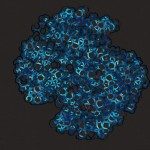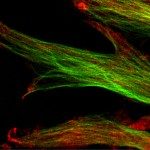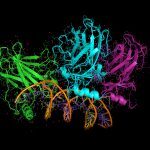Lien vers Pubmed [PMID] – 28522802
Lien DOI – 10.1038/s41598-017-02362-3
Sci Rep 2017 05; 7(1): 2127
The RpoS/σS sigma subunit of RNA polymerase is the master regulator of the general stress response in many Gram-negative bacteria. Extensive studies have been conducted on σS-regulated gene expression at the transcriptional level. In contrast, very limited information regarding the impact of σS on global protein production is available. In this study, we used a mass spectrometry-based proteomics approach to explore the wide σS-dependent proteome of the human pathogen Salmonella enterica serovar Typhimurium. Our present goals were twofold: (1) to survey the protein changes associated with the ΔrpoS mutation and (2) to assess the coding capacity of σS-dependent small RNAs. Our proteomics data, and complementary assays, unravelled the large impact of σS on the Salmonella proteome, and validated expression and σS regulation of twenty uncharacterized small proteins of 27 to 96 amino acids. Furthermore, a large number of genes regulated at the protein level only were identified, suggesting that post-transcriptional regulation is an important component of the σS response. Novel aspects of σS in the control of important catabolic pathways such as myo-inositol, L-fucose, propanediol, and ethanolamine were illuminated by this work, providing new insights into the physiological remodelling involved in bacterial adaptation to a non-actively growing state.











